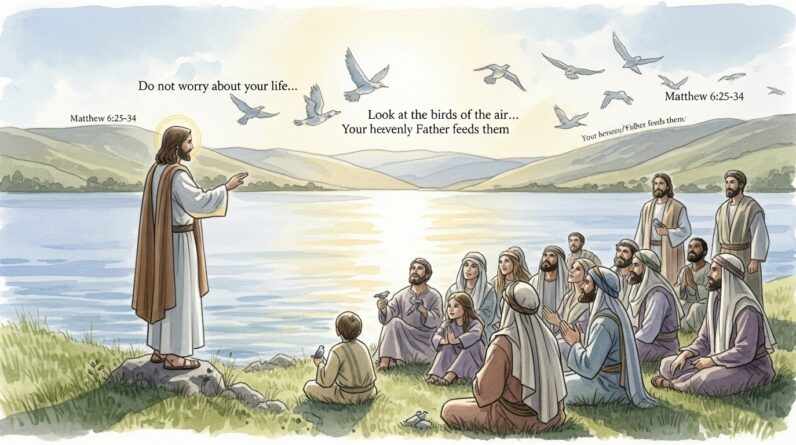Tithing Vs. Giving – Understanding The Biblical Difference
Picture this: You’re sitting in church on a Sunday morning, the room filled with reverent quietness as the offering plate is passed around. You find yourself caught in a familiar internal debate about what you should be contributing. The words “tithing” and “giving” might echo in your head, leaving you wondering about their differences. Fear not, friend; today we’re diving into this very topic to unearth some clarity regarding biblical tithing vs. giving.
Defining Tithing and Giving
Before we delve into the discussion, let’s set the stage with some definitions. “Tithing” comes from the word “tithe,” which literally means a tenth part. Traditionally, it refers to giving 10% of your income to the church. Historically, tithing was an integral part of the Israelite law.
On the flip side, “giving” casts a wider net, encompassing offerings exceeding that basic requirement. Giving is often seen as a free-willed expression, whether it’s money, time, or resources. Unlike tithing, giving doesn’t have a specified percentage, allowing for more personal discretion.
So we have tithing, a sort of baseline requirement, and giving, a broader and often more personal expression of generosity.
The Old Testament and Tithing
The concept of tithing pops up primarily in the Old Testament. Leviticus 27:30 elucidates, “A tithe of everything from the land, whether grain from the soil or fruit from the trees, belongs to the Lord…” (Leviticus 27:30). Tithing was enforced as a way to support the Levites, priests who lacked land inheritance and were dedicated to serving God.
Numbers 18:21 further reinforces the idea: “I give to the Levites all the tithes in Israel as their inheritance in return for the work they do while serving…” (Numbers 18:21). Tithing maintained the religious operations and social structure of the Israelites.
Tithing in the New Testament
Fast forward to the New Testament. Jesus, rather than focusing on the legality of tithing, emphasized the importance of the heart behind the action. In Matthew 23:23, He criticized the Pharisees for diligently tithing while neglecting justice, mercy, and faithfulness (Matthew 23:23). Here’s a real kicker: Jesus advocated for a holistic approach where the act of giving stems from sincere faith and love rather than obligation alone.
While the New Testament doesn’t explicitly mandate tithing as a binding law, it speaks volumes on generosity and selfless giving. In 2 Corinthians 9:7, Paul encourages: “Each one must give as he has decided in his heart, not reluctantly or under compulsion, for God loves a cheerful giver.” 2 Corinthians 9:7. This turning point shifts the conversation from a rigid 10% to heart-driven generosity.

Exploring Biblical Giving
When we explore biblical giving, we step outside the boundaries of law and obligation. Our actions are led by gratitude and divine inspiration. In Acts 20:35, Paul quotes Jesus: “It is more blessed to give than to receive.” (Acts 20:35) Giving becomes an act of faith, a testimony to God’s unconditional love and provision.
The example of the early church in Acts 2:44-45 is a testament to the power of empirical giving. “All the believers were together and had everything in common… They sold property and possessions to give to anyone who had need” (Acts 2:44-45). Such selflessness epitomizes the core of giving in the hearts of believers, elevating it beyond any percentage or form of measurement.
Real-Life Examples of Tithing and Giving
Now, let’s ground these theological concepts in reality with a couple of examples. Imagine Jane, who is passionate about her local church’s outreach programs. She mindfully sets aside 10% of her income each month as a tithe, furnishing the church with a reliable source of support. Jane’s commitment adheres to a biblical precedent, empowering her congregation and community.
Then, consider Sam, a young professional whose heart beats for global missions. Sam regularly donates to a medical mission he discovered online, sometimes contributing amounts far above 10% of his income, depending on his circumstances. His giving is a response to heartfelt gratitude and empathy for those in need.
Jane’s approach showcases traditional tithing, while Sam engages in generous giving—both express faithful stewardship but in unique, personal ways.
Biblical Tithing vs Giving: Key Takeaways
It’s all well and good to understand tithing and giving as biblical concepts, but how do you apply them practically in today’s context?
- Assess Your Heart: Reflect on why you give. Is it merely from a sense of obligation? Or does it come from a place of gratitude and generosity?
- Seek Balance: Tithing is foundational, but doesn’t limit your capacity to give more. Allow your circumstances and spiritual inclinations to guide your giving.
- Stay Committed: Consistency is key. Whether tithing or giving more occasionally, establish habits that are sustainable and meaningful to you.
- Embrace Cheerfulness: Remember what Paul said: God loves a cheerful giver. Let joy, not pressure, guide your contribution.
Embracing Faithful Giving
As you travel through your faith journey, consider using both tithing and giving as means to express your love for God and others. They needn’t be mutually exclusive. The traditional structure of tithing provides stability, while acts of giving exceed expectations with boundless faith.
What matters in the end is not the method but the motive. Be it through tithing or giving, your generosity should be an overflow of your heart’s gratitude, resonating with the divine generosity you’ve received.
Explore More
For further reading and encouragement, check out these posts:
👉 7 Bible Verses About Faith in Hard Times
👉 Job’s Faith: What We Can Learn From His Trials
👉 How To Trust God When Everything Falls Apart
👉 Why God Allows Suffering – A Biblical Perspective
👉 Faith Over Fear: How To Stand Strong In Uncertain Seasons
👉 How To Encourage Someone Struggling With Their Faith
👉 5 Prayers for Strength When You’re Feeling Weak

📘 Jesus and the Woman Caught in Adultery – Grace and Mercy Over Judgement
A powerful retelling of John 8:1-11. This book brings to life the depth of forgiveness, mercy, and God’s unwavering love.
👉 Check it now on Amazon
As a ClickBank Affiliate, I earn from qualifying purchases.
Acknowledgment: All Bible verses referenced in this article were accessed via Bible Gateway (or Bible Hub).
“Want to explore more? Check out our latest post on Why Jesus? and discover the life-changing truth of the Gospel!”








